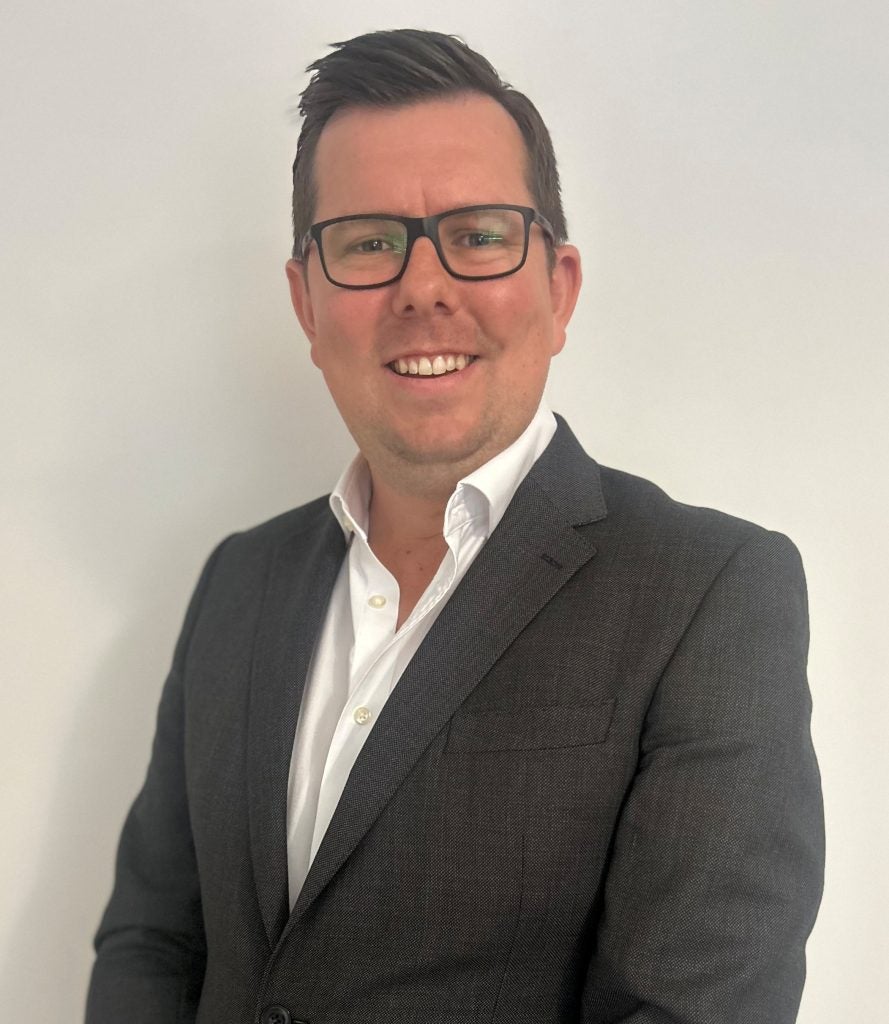Equity analysts across the world primarily rely on techniques that have barely changed for decades. Cyrus Mewawalla, head of Thematic Research at a company that was brought into the GlobalData Group around two years ago, is a pioneer of looking at the world through a ‘theme-based’ prism and extrapolating data on a company’s market valuation and future prospects. Zoya Malik sat down with him to find out more.
Having spent 10 years at PwC as an auditor and consultant, and 15 years as a tech sector stock analyst in the investment banking sector, initially at Nomura, Mewawalla got frustrated with a lack of innovation in the way Wall Street equity analysts valued companies.
“Analysts use discounted cash-flow [DCF] models to value companies. If their model indicates a target price above the current share price, they recommend investors buy the shares,” begins Mewawalla.
“Each analyst feels that they only have the capacity to focus on, say, 10 companies. So they’re real experts in those companies, but because they’re so narrowly focused, they don’t know what’s happening in the outside world. So, when I was at Nomura, I thought that all my colleagues, including me, were so bad at picking stocks, achieving only a 50% success rate, that there must be a better way.”
That is when the idea of analysing ‘big themes’, reflecting global issues or events as an important influence on a company’s value, occurred to Mewawalla. However, faced with entrenched opposition to the concept from all and sundry at Nomura, he decided to leave and, in 2010, formed CM Research, an independent investment research company, untainted by the conflicts of interests plaguing the investment banking sector.
Thematic Approach
The thematic approach concept is to observe and then factor into valuations ‘big themes’ that impact companies, rather than just looking at their individual industry and sector.
How well do you really know your competitors?
Access the most comprehensive Company Profiles on the market, powered by GlobalData. Save hours of research. Gain competitive edge.

Thank you!
Your download email will arrive shortly
Not ready to buy yet? Download a free sample
We are confident about the unique quality of our Company Profiles. However, we want you to make the most beneficial decision for your business, so we offer a free sample that you can download by submitting the below form
By GlobalDataThis is counterintuitive to what most equity analysts do i.e. the traditional DCF approach.
There is no limit, in a real sense, to the number of themes. Examples could be Brexit as a macro theme, data privacy as a regulatory theme or artificial intelligence as a tech theme. Needless to say, not every theme will affect the performance of every industry, sector or company, but analysing the effect of those that do, leads to a more thorough take on the prospects – and, consequently, the potential value – of the subject being analysed.
Factors outside the normal operational sphere are ignored, on the basis that stock markets understand the normal operations of an industry but may be – and often are – oblivious to what is happening outside the industry.
As an example, if you are a supermarket operator, then it is reasonable to expect that the CEO knows how to maximise sales per square foot, but how does the idea of, say, Amazon using robots to fulfil its orders impact that supermarket operator? What will the fallout of a trade war between the US and China be for that same supermarket? What impact does environmental protection regulation have on the business? Hence, the thematic approach.
CM Research Story
CM Research focused on the technology, media and telecoms sector (TMT), mainly because Mewawalla’s experience and expertise from his time at PwC and Nomura, is in that area.
As he explains, “We took the top 600 tech companies in the world and, after extensive research, identified the top 50 themes that would drive their performance. We scored all 600 companies against these 50 themes, generating 30,000 scores within our thematic engine.” The higher the score, the stronger a company’s competitive position in each theme.
CM Research started gathering data and producing reports in 2010, and built its thematic engine by 2012. As Mewawalla expounds, “In 2014, we started getting ranked as credible stock pickers, and by 2017, CM Research was ranked the number one analyst in over 25 stocks, by Bloomberg, which ranked us against all the other banks.”
This ranking served as a great fillip for the company, and an endorsement for its methodology. “We were a small independent investment research house, but MiFID 2 regulation, that meant to put small independent firms on an equal regulatory footing with the big boys, has had the opposite effect,” explains Mewawalla. “The banks undercut the whole independent research industry and drove a lot of independents out of business.”
Link-up with GlobalData
Facing these issues, but with a successful and proven thematic scoring methodology in his pocket, Mewawalla decided that expansion was the order of the day, and that a tie-up with a bigger firm would insulate his company from the market squeeze being applied by the big banks on the price of providing analysis.
He also shifted the commercial focus away from selling to individuals and on to dealing with corporations. Although he was wooed by a handful of bigger actors, a meeting with GlobalData CEO Mike Danson in November 2017 convinced Mewawalla that Danson, who immediately understood the importance of offering clients a thematic view of the world, had the right vision for the product. Mewawalla was installed as head of Thematic Research at GlobalData.
The pairing offered tremendous benefits to both parties, allowing Mewawalla to call on resources that would have been beyond attainment as an independent while giving GlobalData a thematic methodology.
Over the last two years, GlobalData has tagged 5 million content items by theme, literally allowing its clients to view all their research through a thematic lens. Mewawalla believes that “GlobalData’s Themes View is the market-leading thematic research product. We differentiate ourselves from the competition in the level of detail we go into in each theme.”
What About Accountancy?
As with so much else today, technology is an integral part of every aspect of our lives, and the accountancy industry is no exception.
Accountancy firms, like companies in every other industry, are seeking to become more agile by looking to make their processes more efficient. That increased agility can then, hopefully, give them a commercial competitive edge. Mewawalla feels that a thematic approach to analysing their positioning within the accountancy industry and the world at large can prove beneficial up and down the organisation.
Themes such as artificial intelligence (AI) or cybersecurity, not immediately obvious elements when discussing accountancy, are considered important.
Mewawalla explains, “AI process automation can deliver enhanced customer experiences, allowing users at all levels to make queries and get results faster. But as professional services firms, there should also be a greater emphasis on investing in cybersecurity so all that client data that you are so cleverly searching with your AI interface is well protected.”
Client data is, of course, the life blood of any accountancy firm, and the need to protect it seems self-evident. However, in developing, for example, cybersecurity expertise, might accountancy firms then seek to market that expertise as an additional offering to clients? This may be the type of agility that firms across the industry need to consider. Of course, GlobalData advocates this as part of its consultancy remit.
Mewawalla offers another example. “Generally speaking, most accountancy firms do audits in two steps,” he explains. “The first involves systems control and the second is substantive testing. Obviously, cybersecurity is a critical part of a company’s IT systems, and so audit firms need to have far more sophisticated systems to see how good a company is at cybersecurity.
“Presently, organisations left, right and centre are experiencing cyberattacks, and all the auditors can do is state the obvious: ‘You are weak in this respect.’”
According to all reports, a good recent example of this could be the case of British Airways, where auditors were unable to identify cybersecurity flaws caused by a failure to apply the latest software patches to some of its most vulnerable IT systems, leaving a gap that attackers exploited in August 2019.
Other Considerations
Environmental, social and governance (ESG) is expected to be a leading topic of discussion across multiple industries in 2020 and beyond. Without analysing the particulars of ESG here, it would appear that this is another potential area of expertise where accountancy firms may gain commercial traction.
Going hand-in-glove with sustainability issues, ESG as a theme will likely begin to impact company strategies and future value very soon. Companies across all industries will want to test their sustainability credentials and how they can improve them. Accountancy firms that develop expertise to advise on such issues will, logically, receive greater recommendations but, as Mewawalla states, there is a broad spectrum of concepts that feed into this theme: these include questions on carbon emissions, corporate ethics and so on.
Crucially, he rightly stipulates, “These are practices that accountants should start developing now, but before they sell to clients, they should improve their own ESG, and that leads us to discussing the ‘future of work’ issues.
“There are very important developments concerning automation, collaboration, reporting etc.” continues Mewawalla.
“Look at robotic process automation: we’ve got conversational platforms that let you speak to a chatbot instead of an accountant for simple queries. In turn, those accountants can also use chatbots. Let’s say I’m a junior auditor and I don’t know how to do something. I should be able to ask a chatbot instead of wasting my manager’s time.”
While Mewawalla goes on to talk about technology use in compliance, collaboration, process design and myriad other areas, the underlying message is about accountancy firms developing expertise as a source of revenue, and as a means for becoming more efficient, and thereby more competitive.
Conclusion
As Mewawalla points out, the dangers of ignoring the disruptive technology themes impacting an industry have proven fatal in cases such as Thomas Cook, where the rise of peer-to-peer internet-based services like AirBnB was not taken seriously by the travel giant, and ultimately led to its demise. Disney’s refusal to acknowledge internet TV as a viable service has left it five years behind players like Netflix, again because it failed to see the concept’s importance early enough.
Failure to significantly acknowledge relevant themes, often technology-related, in the accountancy industry may lead to firms either losing out on potential business or completely ceding vital commercial territory to a handful of operators.
What is being advocated, then, is a more holistic way of doing business using a thematic analysis of the challenges that abound. The strength of this approach is predicated on GlobalData’s vast resource library, and the fact that, as a virtue of tagging each item of research with links to one or several themes, Mewawalla’s team can generate reports for analysis, stock picking or, in fact, for any commercial or developmental purpose within seconds.





